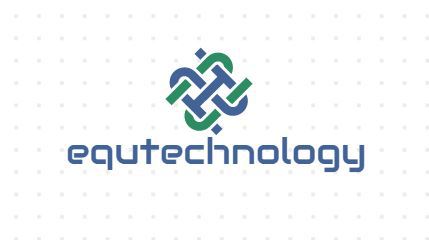Aruba
Enabling BYOD with Aruba ClearPass
Enabling BYOD with Aruba ClearPass
In today’s mobile-centric world, employees increasingly demand the flexibility to use their personal devices (BYOD) for work. While this offers convenience and productivity benefits, it also introduces security challenges. Aruba ClearPass emerges as a powerful solution, enabling secure and manageable BYOD deployments. This guide explores how ClearPass empowers organizations to embrace BYOD while safeguarding their networks.
Understanding BYOD and its Implications
- What is BYOD? BYOD (Bring Your Own Device) allows employees to use their personal smartphones, tablets, laptops, and other devices for work purposes.
- Benefits: Increased employee satisfaction, improved productivity, and reduced hardware costs.
- Challenges: Security risks like data breaches, malware introduction, and unauthorized access. Additionally, managing various device types and enforcing consistent policies can be complex.
Aruba ClearPass: Your BYOD Security Ally
ClearPass acts as a centralized policy enforcement platform, seamlessly integrating with existing network infrastructure. It empowers organizations to:
- Onboard and Register Devices: Users self-register their devices through a secure portal, providing basic information and accepting usage policies. ClearPass captures vital device details for profiling and policy enforcement.
- Enforce Granular Access Control: Define granular access policies based on device type, user group, location, application, and other factors. Grant varying levels of access to different network segments and resources.
- Leverage Multi-Factor Authentication (MFA): Implement robust MFA (e.g., password + fingerprint) for added security when accessing sensitive resources.
- Perform Device Health Checks: Enforce device security compliance by verifying antivirus, encryption, and operating system updates before granting access.
- Enable Secure Guest Access: Offer secure guest Wi-Fi access with limited privileges, ideal for visitors and contractors.
- Automate Workflows: Automate tasks like onboarding, provisioning, and access revocation, streamlining BYOD management.
Key Features of ClearPass for BYOD
- Role-Based Access Control (RBAC): Assign roles to users and devices, granularly controlling access based on pre-defined criteria.
- Guest Management: Create dedicated guest Wi-Fi networks with customizable access restrictions and captive portals.
- Network Access Control (NAC): Enforce endpoint compliance with security policies before granting network access.
- Policy Manager: Define and enforce network access and security policies across wired, wireless, and VPN connections.
- Onboarding Module: Simplifies self-service device registration and configuration, automating workflows.
Deployment Considerations
- Define BYOD policy: Clearly outline acceptable use, security requirements, and consequences for non-compliance.
- Identify user groups and access needs: Segment users based on roles and assign appropriate access levels.
- Integrate with existing infrastructure: Ensure compatibility with your directory services, authentication methods, and network devices.
- Configure ClearPass policies: Define RBAC, NAC, and other policies aligned with your BYOD strategy.
- Train users and IT staff: Ensure users understand BYOD policies and IT staff are equipped to manage the platform.
Benefits of Enabling BYOD with ClearPass
- Increased Security: Mitigate security risks with robust authentication, access control, and device compliance checks.
- Improved User Experience: Offer a seamless and secure BYOD experience, boosting employee satisfaction and productivity.
- Reduced Costs: Eliminate the need to purchase and manage corporate devices for all employees.
- Enhanced IT Efficiency: Automate BYOD workflows, freeing up IT resources for other tasks.
- Scalability and Flexibility: Adapt your BYOD program as your needs evolve, accommodating new devices and user groups.
Environmental Sustainability with BYOD and ClearPass: A Greener Future
Beyond the economic and user experience benefits, enabling BYOD with Aruba ClearPass can contribute to a more sustainable future. By encouraging employees to use their own devices, organizations can significantly reduce their reliance on company-issued hardware. This translates to:
- Reduced manufacturing and e-waste: Fewer devices manufactured means less energy consumption and raw material extraction, minimizing the environmental impact. Additionally, ClearPass helps ensure proper e-waste disposal through responsible recycling partnerships.
- Lower energy consumption: Personal devices tend to be more energy-efficient than traditional desktops, leading to reduced energy usage within the workplace. ClearPass further optimizes energy consumption by enabling features like sleep modes and power management policies for connected devices.
- Smaller carbon footprint: With fewer devices and lower energy use, organizations can achieve a significant reduction in their carbon footprint. This aligns with growing environmental awareness and contributes to combating climate change.
While security remains paramount, embracing BYOD with the responsible management of ClearPass unlocks not only convenience and cost savings but also a path towards a more sustainable future. This approach empowers organizations to contribute to a greener world while enhancing employee experience and organizational efficiency.
Conclusion
Aruba ClearPass empowers organizations to securely and effectively manage BYOD programs. By leveraging its comprehensive features, organizations can unlock the benefits of BYOD while ensuring network security and user privacy. With this guide, you have the knowledge and tools to embark on your successful BYOD journey with ClearPass.
Additional Resources:
- HPE Aruba Networking ClearPass for Zero Trust Security
- ClearPass OnBoard: Automated device provisioning for secure BYOD
- The ClearPass Onboard Process
- Aruba ClearPass Community

